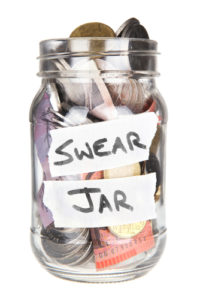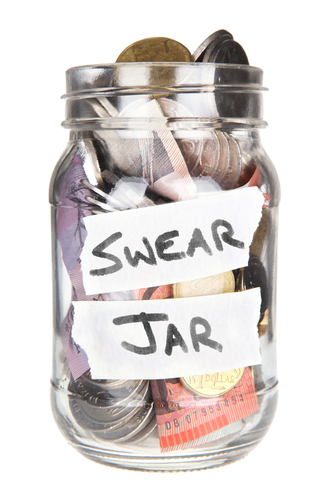 The #metoo movement has prompted a lot of consideration about what is acceptable in the workplace. Some behaviors – like “quid pro quo” sexual harassment and groping – are egregious and clearly inappropriate.
The #metoo movement has prompted a lot of consideration about what is acceptable in the workplace. Some behaviors – like “quid pro quo” sexual harassment and groping – are egregious and clearly inappropriate.
But what about swearing, a habit shared by more than half of American workers? (And, reportedly, the President of the United States?)
According to a study by Wrike, a project management software company, 57 percent of U.S. workers use profanity in the workplace – and 93 percent say they have colleagues who “openly swear.” Other foul-mouthed findings:
- Two-thirds of Millennials cuss at work, compared to 54 percent of their Baby Boomer and Generation X colleagues.
- Women are slightly more likely to curse at work; 60 percent do, compared with 55 percent of men. (But the men who do swear are said to do it with more frequency.)
- Audience matters: 80 percent will swear in front of peers, while only 55 percent will swear in front of a manager. Only 2 percent admit to swearing in front of clients.
- The saltiest industry? Health care, where 64 percent of employees admit to cursing on the job. It’s followed by finance (62 percent), professional services (61 percent), technology (59 percent), government (53 percent) and education (48 percent).
Despite some recent research that suggests office swearing reduces stress and boosts team spirit, it can be a liability for management. Rampant cursing can make an unprofessional impression, jeopardize client or vendor relationships, and even risk accusations of a hostile work environment. (Indeed, the Department of Labor counts “verbal abuse, including offensive, profane and vulgar language” in its Workplace Violence program.)
Our take: Although it’s often an inconvenient truth, your people are….people. Human beings make mistakes and feel emotions, and when the printer jams or the computer crashes, they just might utter a few four-letter words. (On the right day, at the right time, you just might hear those words at People People, too.)
The key is to know the context of the swearing. There’s a marked difference between “Oh, sh*t, I just lost this document,” and “I’m tired of your Christian attitude and your Christian sh*t all over your desk and your Christian sh*t all over the place.” That second comment comes straight from a lawsuit in Portland, Ore., where an employee won damages and attorneys’ fees; the problem wasn’t in the swearing, but in the religious discrimination behind it.
Hateful speech that demeans another employee’s age, sex, religion, race or color, sexual orientation, disability or military status is always unacceptable – swearing or no.
So WTF should managers do about profanity at the office?
- Start with policy. Your employee handbook can and should outlaw hateful and harassing speech. Beyond that, your policy – and your culture – should set the expectations for professional behavior. (In the swearing survey we referenced earlier, 33 percent of workers said they would not stay at a company that banned profanity altogether – worth noting.)
- Consider the context. Foul language from frustration is different from discriminating or harassing speech. The first can be forgiven; the second must be documented and addressed.
- Hire for emotional intelligence. Individuals with emotional intelligence can gauge when cursing is OK and when it’s FUBAR.
- Train managers and supervisors to scout unacceptable language, to appropriately handle complaints from other employees, and most importantly, to lead by example.
Are the f-bombs flying at your office? Contact People People for help with a practical policy.

